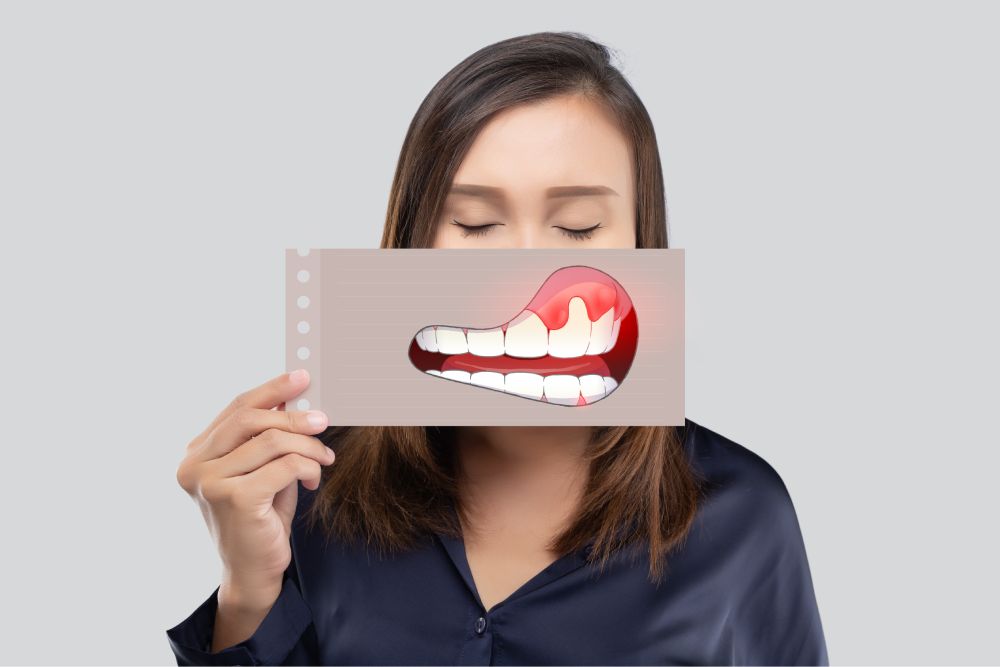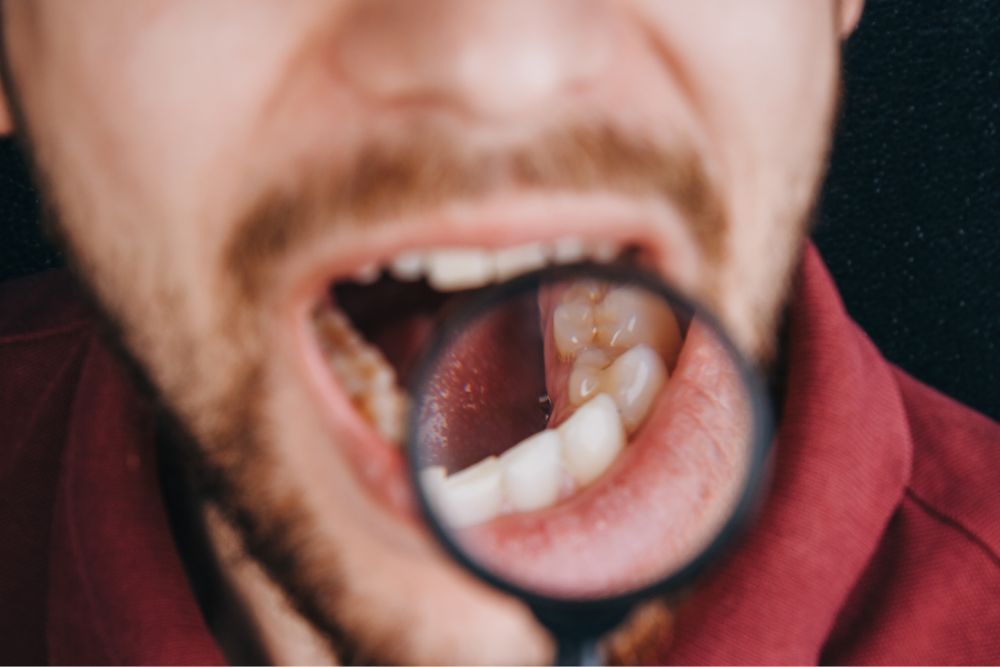Oral health is so important, but dental diseases like tooth decay and gum disease continue to affect millions of people around the world. Not only are they painful, but they can also lead to serious health complications if left untreated.
Knowing about the different types of dental disease, as well as the causes and treatments, are an important step to taking charge of your own oral health. A core factor in nearly all dental disease is poor oral hygiene, allowing bacteria to build up.
Table of Contents
ToggleTooth Decay
Tooth decay, also known as dental caries or cavities, is one of the most common dental diseases. Teeth can become decayed when bacteria in the mouth feeds on sugars from food debris. The acid and bacteria forms a sticky film called dental plaque, and the acid erodes the tooth enamel, creating holes, or cavities.
The primary causes of tooth decay are poor oral hygiene, a diet high in sugary or acidic foods and drinks, and a lack of fluoride, which strengthens tooth enamel.
Preventing tooth decay involves maintaining excellent oral hygiene, including regular brushing and flossing, avoiding sugary and acidic foods, and using fluoride toothpaste and drinking fluoridated municipal water. Your dentist may also provide special fluoride treatments.
Treat Tooth Decay
Cavities can be treated in the earlier stages with simple dental fillings, but more advanced cases may require a root canal treatment or a crown to help restore strength to the decayed tooth. In very severe cases, the tooth may need to be extracted.
Periodontal (Gum) Disease
Gum disease begins with plaque buildup and gum inflammation. At this stage, it is called gingivitis. Early symptoms of gum disease include bleeding gums and red or swollen gums when brushing your teeth or flossing. You can treat gingivitis, but without treatment, it can progress to severe periodontal disease. In this advanced stage, the infection spreads deeper into the supporting structures of teeth, causing gum pockets, gum recession, and bone loss. Eventually, loose teeth and tooth loss can occur. This form of gum disease cannot be cured, only managed.

Poor oral hygiene is the primary cause of gum disease, although other factors such as smoking, genetics, diabetes, and certain medications increase your risks. To help prevent gum disease, excellent daily oral care, regular dental check-ups, and lifestyle changes such as quitting smoking, having a healthy diet, and carefully managing any chronic conditions, are essential.
Treat Gum Disease
Treatment of gum diseases depends on the stage and severity of the disease. Mild cases can be managed with improved oral hygiene and professional cleanings, while advanced stages of periodontal diseases may require scaling and root planing to remove hardened tartar under the gum line, antibiotics, or even surgical procedures like gum grafts.
Oral Cancer
Oral cancer is a potentially life-threatening dental disease that affects various parts of the mouth, including the lips, tongue, cheeks, and throat.

Tobacco and alcohol use are significant risk factors for oral cancer. Having human papillomavirus (HPV) can increase the risk. Lifestyle measures, such as avoiding tobacco and excessive alcohol consumption and having regular screenings at dental check-ups for early detection are essential.
Treat Oral Cancer
Treatment for oral cancer may involve surgery, radiation therapy, chemotherapy, or a combination of these modalities. Early detection greatly improves the chances of successful treatment.
Tooth Enamel Erosion
Dental erosion is the gradual loss of tooth enamel due to acidic foods and drinks or stomach acids from acid reflux. Enamel can also be physically worn away, due to teeth grinding or harsh brushing with a hard toothbrush.Treating your acid reflux, avoiding acidic food and beverages, and gently brushing, using a soft brush and fluoride toothpaste helps prevent this condition.
Enamel doesn’t grow back, but it can be managed. Erosion treatments include dental bonding, veneers, or dental crowns to restore damaged teeth.
Tooth Sensitivity
Tooth sensitivity tends to be a symptom of other oral and dental issues. Pain is experienced when consuming hot, cold, sweet, or acidic foods and beverages. It is usually a result of thinning tooth enamel, gum recession, teeth grinding, or, in certain cases, teeth whitening.
Using a soft-bristle toothbrush, avoiding abrasive toothpastes, and getting a night guard to protect against teeth grinding will help. Choosing to consult with a dentist before whitening teeth, and having a dentist-supervised treatment helps prevent sensitivity issues from whitening.

Treat Sensitivity
Addressing the root cause of the sensitivity is important. If the sensitivity is due to decay or an infected root canal, these conditions will need to be treated right away.
Fluoride treatments, dental sealants, dental bonding or gum grafts to cover exposed tooth roots also may be done. A desensitizing toothpaste will help relieve the pain.
Dental Abscess
A dental abscess is an infection in the tooth or surrounding gum tissue. It is typically caused by untreated tooth decay or gum disease; bacteria is then able to enter and infect the pulp, or inner tissues of the tooth root. This is a dangerous condition, as the infection can spread further.
Regular dental check-ups to identify and ensure early treatment of any dental issues, along with good oral hygiene practices, will help prevent a painful abscess.
Treat Abscesses
The abscess will likely need to be drained, and a course of antibiotics given. Root canal therapy, or in very severe cases, a tooth extraction may be necessary.
Dry Mouth
Dry mouth is a condition where the salivary glands do not produce enough saliva, leading to oral discomfort and an increased risk of dental diseases.
It can be caused by medications, medical conditions, radiation therapy, or aging. Staying hydrated, using sugar-free gum to stimulate saliva production, and consulting a healthcare provider about your conditions or medications as necessary will help.
Treat Dry Mouth
Treatment options include medications to stimulate saliva production, artificial saliva substitutes, and addressing an underlying cause when possible.
Role of Dental Hygiene and Regular Check-ups
Maintaining good dental hygiene practices and scheduling regular dental check-ups are fundamental for preventing and detecting dental diseases at an early stage.
Neglecting dental hygiene and not benefiting from preventive treatments like professional dental cleanings, fluoride treatments, and fissure sealants as needed can increase your risk of developing dental diseases. If you do develop gum disease, tooth decay, or other conditions, regular visits to the dentist ensure they are discovered sooner, so they can be successfully treated early.
Taking a proactive approach to oral care and prioritizing regular dental checkups significantly reduces the risks of dental diseases.

At Gateshead Dental, our team focuses on the prevention of dental diseases. We believe in educating our clients about their individual dental needs and care. Whether you’re having a professional cleaning by a dental hygienist, or a checkup by one of our dentists, we take time to discuss your unique needs and answer any questions.
He’s completed a number of additional courses to best serve his patients and be able to educate them too. No matter your age or dental condition Dr. Sims can assist you in a professional manner and loves answering any of your questions or concerns.
- How to Care for Dental Implants - April 26, 2024
- Is It Safe to Have Dental Work Done During Pregnancy? - February 28, 2024
- How Does A Dental Bridge Work? - January 17, 2024
